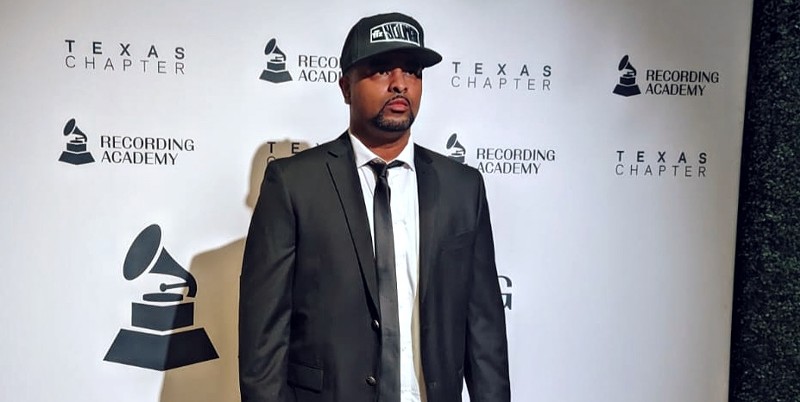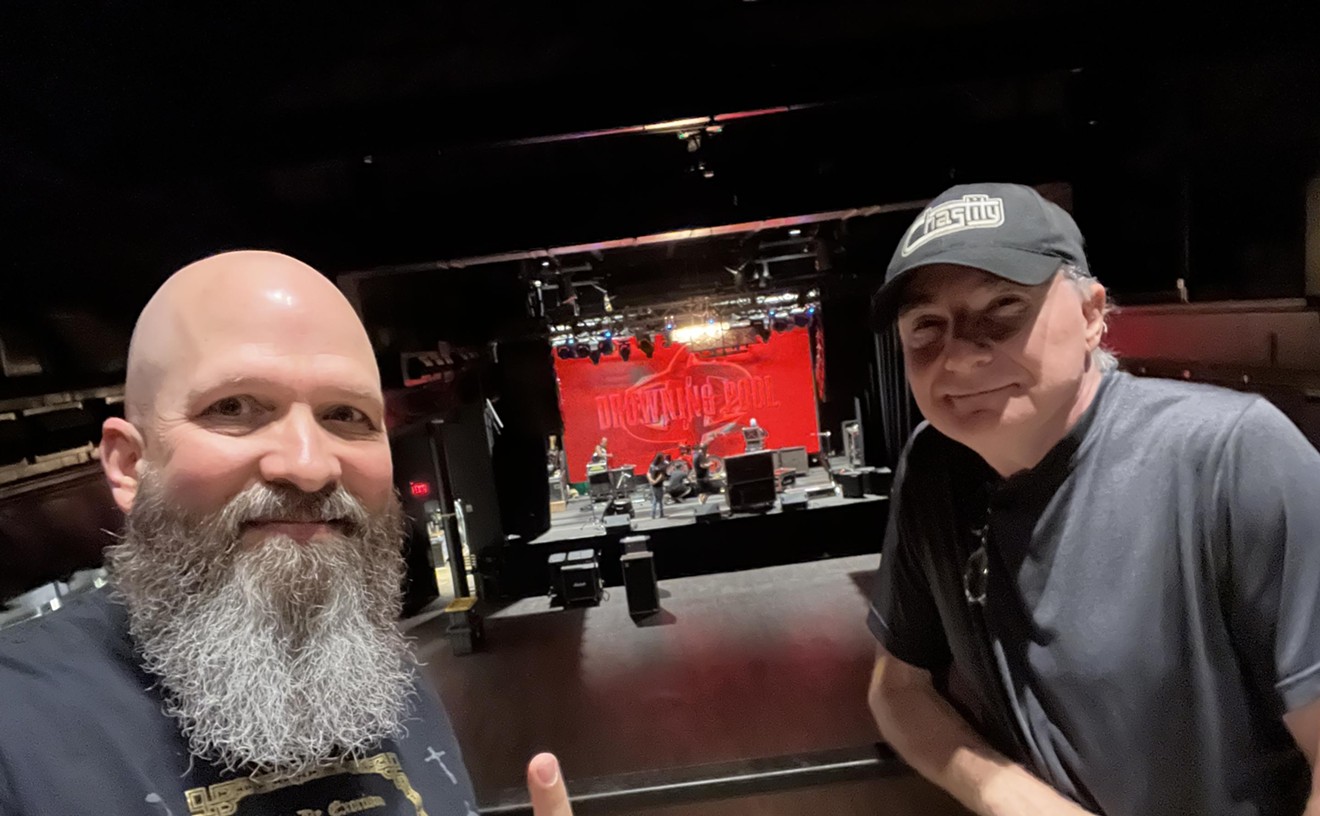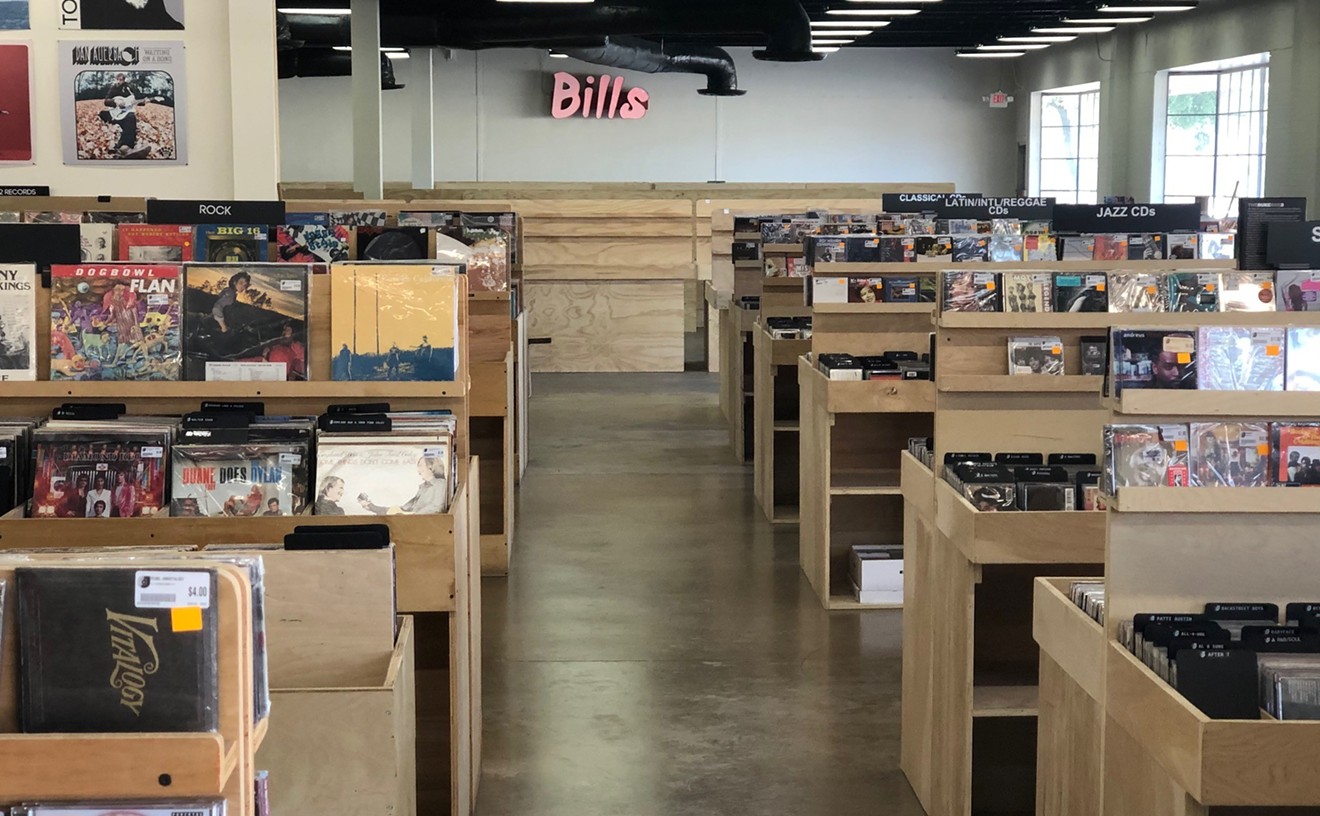For years, Dallas has served as an excellent behind-the-scenes music city. While the city has birthed legendary musicians from Erykah Badu to Big Tuck, much of the city’s catalog comes by way of the hardworking producers, songwriters and engineers. After graduating from Allen High School in 2004, industry professional Keith “Youngin” George II began to carve a path in the music industry.
One of his earliest breakthroughs came in 2007, after producing a hip-hop compilation mixtape featuring a burgeoning Hitmaka (who was then rapping under the name Yung Berg). Over nearly two decades, Youngin has collaborated with the likes of Maino, T-Pain, Nas and Soulja Boy — with whom he launched a web platform called Kandiid in 2021.
These days, Youngin works as a strategic advisor for musicians and as an executive business and marketing consultant. He's also a member of the Recording Academy Class, with a mission to help garner representation for artists and help them get their flowers.
Youngin has seen the musical landscape go through many changes. He notes a lack of artist development in the streaming and content era.
“We see TikTok and the fame that people are getting from that, and labels would rather go to somebody who has the fan base, and sign those guys,” Youngin says. “They don't want to spend the time developing. They're seeing how things are over on YouTube and TikTok and it's like, ‘Oh, you know what, these guys have millions of followers, we don't have to put money into them, we can just sign them to a basic deal. They already have the fan base.’ So, you know, I think those things are what kills it.”
Additionally, with the saturation of digital streaming platforms, Youngin says the overflow of content allows for very few records to make a cultural impact in the way they used to. Back in the day, Jay-Z and Nas would have radio and the streets heated for weeks, and their albums would age well, prompt thoughtful discourse and inform the production value of those who came after them.
Albums like Kendrick Lamar’s 2015 album To Pimp A Butterfly have had a similar impact in recent times, but among the flooded streaming libraries, those albums have become more of a novelty than a frequent occurrence. Youngin believes this is largely in part due to a dwindling number of A&R people behind the scenes.
“I think there’s a lack of guidance,” Youngin says. “No one is stepping in to help. I think people see things on social media and are like, 'Oh, man, that's what I want to be.’ But they don't look at the behind-the-scenes work, and what it takes to do all that. Everybody wants to jump in and go to a studio, record a song and think it's gonna do something, and that's not how it works. That way of thinking is getting worse because we're getting so far away from actually taking the time to develop. There's just no guidance anymore, there's no direction, there's no time put in and it's not the same."
A year past the 2023 writers' strike, during which film and television writers halted work and production on their projects to protest low wages and residuals, similar issues plague the music industry. Producers, songwriters and engineers often take to the internet to complain that some artists pay them very late, very little or sometimes not at all.
In February, four producers who contributed to Houston rapper Travis Scott’s Utopia reported that they hadn’t gotten paid for their work. Muni Long, who has written for the likes of Ariana Grande, Rihanna and Nick Jonas, also noted that sometimes, she wouldn’t receive payment for her songwriting work for years.
Youngin recalls a time when he was working with an engineer who had not received payment from a big-name producer.
“He had to call us to borrow money just to pay his bills,” Youngin says. “And people outside of the music industry don’t see that. They see the facade of everything, but they don't see what the artists and producers behind the scenes are going through. And it's sad, but this is nothing new to us.”
One of the key components of Youngin’s mission as an autonomous music/business liaison, music manager and A&R professional is longevity. He is still receiving RIAA gold and platinum plaques for songs he produced over a decade ago. He aims to help each artist he works with leave a lasting impact in people’s minds and ears.
Youngin’s current roster includes composer and instrumentalist Sam Jacobs, one of the godfathers of hip-hop; producer De-Capo; and Grammy Award-winning singer Joey Beanz of Rude Boys. He currently oversees two different music projects that will arrive later this year. In tandem, he is also working the Recording Academy to help diversify the world of the Grammys.
“It's always good to experiment with different genres and work with different people, and this is what 2024 is looking like for me,” says Youngin. “Taking my skill and doing what I can with anyone. My biggest thing is facilitating connections for people, and I'm glad to be a part of this.”
[
{
"name": "Air - MediumRectangle - Inline Content - Mobile Display Size",
"component": "18855504",
"insertPoint": "2",
"requiredCountToDisplay": "2",
"watchElement": ".fdn-content-body",
"astAdList": [
{
"adType": "rectangle",
"displayTargets": "mobile"
}
]
},{
"name": "Editor Picks",
"component": "17105533",
"insertPoint": "4",
"requiredCountToDisplay": "1",
"watchElement": ".fdn-content-body",
"astAdList": [
{
"adType": "rectangle",
"displayTargets": "desktop|tablet"
},{
"adType": "rectangle",
"displayTargets": "desktop|tablet|mobile"
}
]
},{
"name": "Inline Links",
"component": "18349797",
"insertPoint": "8th",
"startingPoint": 8,
"requiredCountToDisplay": "7",
"maxInsertions": 25
},{
"name": "Air - MediumRectangle - Combo - Inline Content",
"component": "17105532",
"insertPoint": "8th",
"startingPoint": 8,
"requiredCountToDisplay": "7",
"maxInsertions": 25,
"watchElement": ".fdn-content-body",
"astAdList": [
{
"adType": "rectangle",
"displayTargets": "desktop|tablet"
},{
"adType": "rectangle",
"displayTargets": "desktop|tablet|mobile"
}
]
},{
"name": "Inline Links",
"component": "18349797",
"insertPoint": "8th",
"startingPoint": 12,
"requiredCountToDisplay": "11",
"maxInsertions": 25
},{
"name": "Air - Leaderboard Tower - Combo - Inline Content",
"component": "17105535",
"insertPoint": "8th",
"startingPoint": 12,
"requiredCountToDisplay": "11",
"maxInsertions": 25,
"watchElement": ".fdn-content-body",
"astAdList": [
{
"adType": "leaderboardInlineContent",
"displayTargets": "desktop|tablet"
},{
"adType": "tower",
"displayTargets": "mobile"
}
]
}
]












